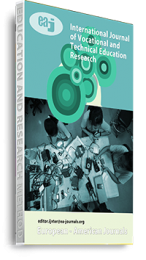In this era of creative and flexible learning, most vocational education and training (VET) in developing countries still adopt a passive approach to learning where students’ success in examination is based on their ability to reproduce a credible portion of their notes from memory. Although the curricula and teaching methods have remained largely unchanged in developing countries over the years, employers are increasingly demanding technical competencies, analytical thinking, communication and entrepreneurial skills. Essentially, the study seeks to find out how curriculum development processes of CBT provides framework for aligning teaching and learning processes to equip trainees with requisite skills and competencies to perform in the world of work. The study examines relevant literature and policy papers from several databases together with key stakeholder consultations to obtain insights into CBT curriculum development processes, underlying assumptions, philosophies, linkages with Bloom taxonomy of educational objectives, assessment practices and outcomes and their eventual effects on the achievement of relevant skills and competencies required to perform professional tasks. The study shows that although mastery of a job-specific task is important, it does not ensure a competent employee particularly in the context of rapid pace of technological change and high labour mobility. Moreover, when outcomes of learning are tied to descriptions of work, or specific workplace activity, it emphasises tradition and limits transfer of skills and labour mobility, leaving graduates largely for routine and restricted tasks which may not guarantee employability (Nuffield Review, 2008). Prospective employees need to acquire a broader range of soft skills, professional competencies and attitudes to continually adapt and transfer skills and knowledge in different contexts. It is imperative for industry to engage in innovative forms of collaboration to achieve industry–demand driven form of training and smooth transition of students from school to work. Feedback from assessment must focus on task-oriented information and corrective advice to build students’ self-esteem to self-regulate their learning towards the achievement of learning goals.
Keywords: Assessment, Competency-Based, Curriculum, Skills, Workplace

